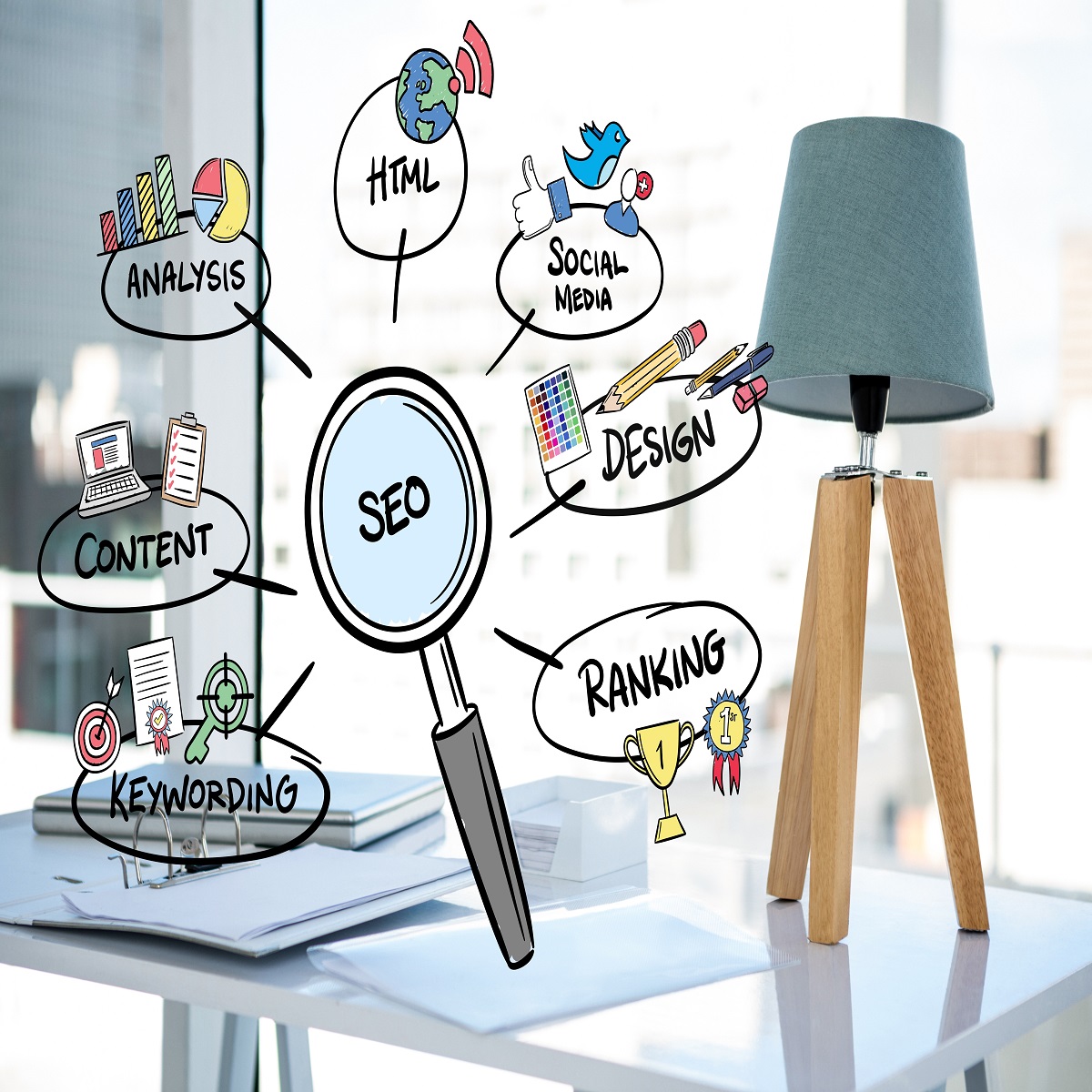The Ultimate Guide to SEO AI Tools for 2025
Why SEO Still Matters in 2025?
In the dynamic digital landscape of 2025, SEO continues to be a critical driver of online visibility. As the internet becomes more crowded with content, search engine optimization remains one of the most effective ways for businesses to attract organic traffic without relying solely on paid advertising. A well-optimized presence on search engines not only improves discoverability but also builds trust and credibility among users who tend to favour top-ranking results.
SEO is no longer just about ranking high it’s about being found by the right audience at the right time with content that genuinely meets their needs. From small businesses to global brands, companies that invest in strong SEO foundations benefit from long-term digital growth and sustained traffic. Its role has evolved with the times, but its impact on visibility, engagement, and conversions remains more powerful than ever.
The Rise of AI in Search Engine Algorithms
Artificial intelligence has drastically reshaped how search engines operate. Algorithms are now more intelligent, capable of understanding searcher intent, content relevance, and even the emotional tone of queries. Voice search, visual search, and semantic analysis are becoming mainstream, thanks to AI-powered updates. Search engines no longer rely solely on keywords they assess user behaviour, site experience, and contextual accuracy to rank results. As a result, SEO strategies must adapt to align with these smarter systems.
How AI Tools are Transforming SEO Workflows
Today’s SEO professionals are leveraging advanced technologies to enhance their productivity and precision. seo ai tools streamline everything from keyword research and content planning to on-page optimization and performance tracking. These innovations reduce guesswork and automate tedious processes, allowing marketers to focus on high-level strategy and content quality. In conclusion, SEO is not only still relevant in 2025 it’s more sophisticated, strategic, and AI-driven than ever before. Those who embrace the fusion of human creativity and intelligent automation will stay ahead in the ever-competitive digital space.
What are SEO AI Tools?
AI-powered SEO tools are intelligent software applications designed to simplify and enhance the process of search engine optimization using artificial intelligence. These tools help users, whether beginners or professionals, optimize their content, improve rankings, and gain visibility without relying entirely on manual efforts. By analyzing large volumes of data and identifying patterns, they make SEO more effective and accessible.
How they Differ from Traditional SEO Tools
While traditional SEO tools offer valuable functions like keyword tracking, backlink audits, and performance monitoring, they often require extensive manual input and interpretation. In contrast, AI-powered SEO tools adapt in real time using machine learning and natural language processing. This means they can understand search intent, adjust strategies based on algorithm changes, and provide intelligent suggestions that evolve with user behaviours and market trends.
Key Benefits: Automation, Insights, Speed, and Accuracy
AI-powered SEO tools offer four core benefits that make them stand out. First, automation — they handle repetitive tasks like keyword research, content audits, and competitor analysis. Second, deep insights — they analyse data from multiple sources to guide smarter decisions. Third, speed — they generate actionable suggestions in minutes, not hours. Fourth, accuracy — they reduce errors and keep your SEO aligned with the latest best practices.
Real-World Use Cases for Bloggers, Businesses, and Marketers
Bloggers use these tools to identify trending topics, enhance content structure, and increase reach. Businesses improve their local and global visibility with automated audits and smart keyword targeting. Marketers benefit by streamlining campaigns and staying updated on search trends. Today, ai tools for seo are becoming essential for anyone looking to grow in the digital space with efficiency and precision.
How Do AI Tools for SEO Work?
One of the core technologies powering AI tools is Natural Language Processing (NLP). This enables tools to understand how humans write, search, and interact with content. NLP allows SEO tools to analyse tone, readability, and context, ensuring content is optimized not just for search engines, but for real people. It helps identify keyword variations, semantic relevance, and user intent, making content more aligned with what searchers are actually looking for.
Machine Learning and Predictive Analysis
AI tools learn from vast datasets to continuously improve their recommendations. Through machine learning, they can predict which content is likely to rank higher, which keywords are gaining momentum, and which SEO strategies are most effective for a specific niche. Predictive analysis helps marketers stay ahead of search engine algorithm updates and competitor trends by suggesting timely and data-backed actions.
Keyword Analysis, Content Optimization, and Technical Audits
These tools streamline three essential areas of SEO. First, keyword analysis AI can find long-tail, high-intent keywords faster and more accurately than manual methods. Second, content optimization AI evaluates content structure, headline strength, keyword density, and engagement potential to improve performance. Third, technical audits—AI quickly scans websites for issues like broken links, slow page speed, and mobile usability, providing actionable fixes without manual digging.
Examples of AI-Driven Features
Real-world features include automated content briefs, topic clustering, voice search optimization, competitor gap analysis, and dynamic content suggestions. Some tools even generate meta descriptions or blog outlines based on top-ranking content. These features drastically reduce time spent on research and increase the precision of your SEO strategy.
In short, the power of ai tools for seo lies in their ability to combine intelligence, automation, and speed making SEO more efficient and results-driven than ever before.
What are the Top SEO AI Tools for 2025 You Should Know?
AI tools optimize content by analysing readability, keyword usage, and engagement. They suggest improvements for headlines, subheadings, and tone to enhance both search engine ranking and user experience. Additionally, AI-powered keyword research tools help identify high-traffic, low-competition keywords, uncover keyword variations, and predict trends.
Pros: Automates content revisions, uncovers keyword opportunities.
Cons: Requires human oversight for detailed adjustments.
Use Case: Bloggers and marketers use these tools to optimize content and find effective keywords.
Technical SEO & Backlink Analysis
AI tools scan websites for technical issues such as broken links, site speed, and mobile optimization. They provide insights and actionable fixes to enhance site performance. Similarly, AI-driven backlink analysis tools track and evaluate backlinks, uncovering new link-building opportunities and competitor strategies.
Pros: Automates technical audits, improves backlink strategies.
Cons: Can be complex for beginners, limited by link databases.
Use Case: Website owners and SEO agencies use these tools to enhance site performance and build better backlinks.
AI Writing Assistants
AI writing assistants quickly generate SEO-optimized content, including blog posts, product descriptions, and meta descriptions. They suggest edits for style, grammar, and keyword inclusion to ensure content ranks well.
Pros: Saves time, automates content creation, optimizes for SEO.
Cons: Lacks creative flair and human touch.
Use Case: Content creators and businesses use these tools for efficient content generation.
Predictive Analytics & Trend Forecasting
AI tools now offer predictive analytics that helps forecast SEO trends. By analysing vast datasets, they can predict emerging topics, popular keywords, and shifts in search behaviours.
Pros: Helps stay ahead of trends, proactive strategy adjustments.
Cons: May require periodic data refreshes for accuracy.
Use Case: Digital marketers use these tools to refine long-term strategies and capture trending opportunities early.
In 2025, seo ai tools are essential for improving SEO workflows, content optimization, keyword research, and site performance, helping digital marketers stay ahead of the competition.
How Can you Effectively Use SEO AI Tools?
To start, choose the SEO AI tool that best matches your goals, whether it's content optimization, keyword research, or technical SEO. Take time to evaluate features like ease of use, accuracy, and support to find the best fit for your needs. Once the tool is chosen, set up your website by connecting it to the SEO AI platform. This often involves adding a plugin or linking to Google Analytics. Make sure the tool can access all the necessary data to analyse and generate valuable insights.
Conduct a Full Site Audit
Use the AI tool to conduct a comprehensive site audit. The tool will scan your website for common SEO issues such as broken links, slow load times, or missing meta descriptions. It will provide a health score and suggest improvements to optimize your site.
Conduct Keyword Research
Leverage the SEO AI tool to research keywords that are relevant to your content. The tool will suggest high-traffic, low-competition keywords, along with related search terms. By incorporating these keywords, you can boost your website's visibility and search ranking.
Optimize and Monitor Content
Once you've conducted keyword research, use the AI tool to optimize your content for SEO. The tool will recommend adjustments for keyword usage, readability, meta descriptions, and internal linking. After implementing changes, regularly monitor performance using the tool’s reporting features to track ranking improvements and overall SEO health.
In 2025, seo ai tools are invaluable for anyone serious about boosting website performance. By following these steps, you can streamline your SEO efforts and stay ahead in the digital marketing game.
What are the Best Practices When Using AI Tools for SEO?
While AI-powered SEO tools offer powerful automation and insights, the best results come from combining AI capabilities with human expertise. AI can handle data analysis, keyword suggestions, and technical audits, but human creativity and strategic thinking are essential for making the final decisions. Humans can refine content tone, ensure contextual relevance, and adjust strategies based on intuition and market understanding, complementing AI’s efficiency with a personalized touch.
Ethical SEO with AI
As AI tools become more prevalent, it’s crucial to ensure that ethical SEO practices are followed. Using AI to manipulate search rankings through tactics like keyword stuffing, content scraping, or creating misleading backlinks can result in penalties from search engines. Instead, AI should be used to enhance content quality, improve user experience, and drive organic traffic without resorting to shortcuts. Ethical SEO practices build trust with both users and search engines, contributing to long-term success. When using AI tools, always prioritize user value and provide authentic, informative content that aligns with best practices in the SEO community.
Adapting to Algorithm Changes
SEO is an ever-evolving field, with search engine algorithms frequently changing to improve user experience and relevance. AI-powered SEO tools are constantly being updated to stay aligned with these changes. However, it’s essential to remain agile and adaptable. Regularly monitor algorithm updates, evaluate AI-driven recommendations, and adjust strategies accordingly. AI can help predict trends and identify shifts in search behaviour, but human oversight is crucial to staying ahead of algorithm updates and maintaining compliance with search engine guidelines. A proactive approach, combining AI-driven insights with human expertise, ensures that SEO strategies stay effective and relevant, even as algorithms evolve.
What are the Common Mistakes to Avoid with SEO AI Tools?
One of the most common mistakes when using ai tools for seo is relying too heavily on them. While AI can automate many tasks like keyword research, content optimization, and technical audits, it cannot fully replace human creativity and strategic thinking. Over-relying on AI may result in generic content, missed opportunities, or a lack of personalization. It’s essential to balance AI automation with human expertise to ensure your SEO strategy remains unique and effective.
Ignoring Intent or UX
Another mistake is focusing too much on keywords and technical SEO while neglecting user intent and experience (UX). SEO tools powered by AI may recommend keywords and content optimizations, but they don’t always account for the user’s journey. The goal of SEO is to satisfy both search engines and users. Ignoring user intent can lead to content that ranks well but doesn't resonate with the audience, resulting in high bounce rates and low engagement. Always prioritize delivering a positive user experience alongside technical SEO efforts.
Not Tracking Results
Failing to track and analyse the results of AI-driven SEO strategies is a significant mistake. SEO is an ongoing process, and without monitoring the effectiveness of your efforts, it’s difficult to know what’s working and what isn’t. AI tools can provide data and insights, but without tracking performance metrics such as traffic, rankings, and conversions, you can’t optimize your strategy. Use AI tools to gather insights and then regularly assess and refine your approach to achieve sustained SEO success.
Avoiding these mistakes ensures that AI-driven SEO strategies are used effectively, allowing you to maximize their potential while maintaining a human touch and strategic focus.
How Can you Learn to Use AI for SEO with LAI?
LAI offers a comprehensive training program designed to help beginners master the intersection of SEO and AI. Whether you're new to SEO or just starting with AI, the courses are structured to build a strong foundation. You'll learn the basics of SEO, including keyword research, on-page optimization, and content strategies, while also exploring how AI tools can enhance these processes. LAI’s curriculum is easy to follow and tailored to equip you with the skills needed to leverage AI for SEO success.
Tools, Templates, and Support
In addition to training, LAI provides essential tools and templates to support your learning journey. These resources make it easier to implement what you’ve learned in real-world projects. The platform offers access to AI-driven SEO tools that can help automate tasks like keyword analysis, content optimization, and site audits. Along with these tools, you'll receive templates for content creation, keyword research, and technical SEO tasks, giving you a hands-on experience of AI in action. LAI’s support team is also available to answer questions and provide guidance as you apply these skills.
How LAI Prepares You for the AI-Powered SEO Future
As AI continues to shape the future of SEO, LAI ensures you're not just learning the current tools but also preparing for what's to come. The courses are regularly updated to reflect the latest trends in AI and SEO, ensuring that you stay ahead of the curve. LAI’s curriculum includes insights on AI-driven algorithm changes, ethical AI practices, and the best strategies to integrate AI into long-term SEO plans. With this forward-thinking approach, you’ll be well-equipped to thrive in the AI-powered SEO landscape.
Conclusion
In summary, mastering seo ai tools is essential for staying ahead in the fast-paced world of digital marketing. These tools can automate repetitive tasks, enhance keyword strategies, and improve website performance with ease. By using ai tools for seo effectively, you can unlock a competitive edge, ensuring that your content ranks higher and reaches the right audience. However, it’s important to balance AI’s efficiency with human creativity to craft unique, user-focused content. Continuous learning is key in this rapidly evolving field. Embrace the power of AI, and keep refining your strategies to stay competitive in the digital landscape.








